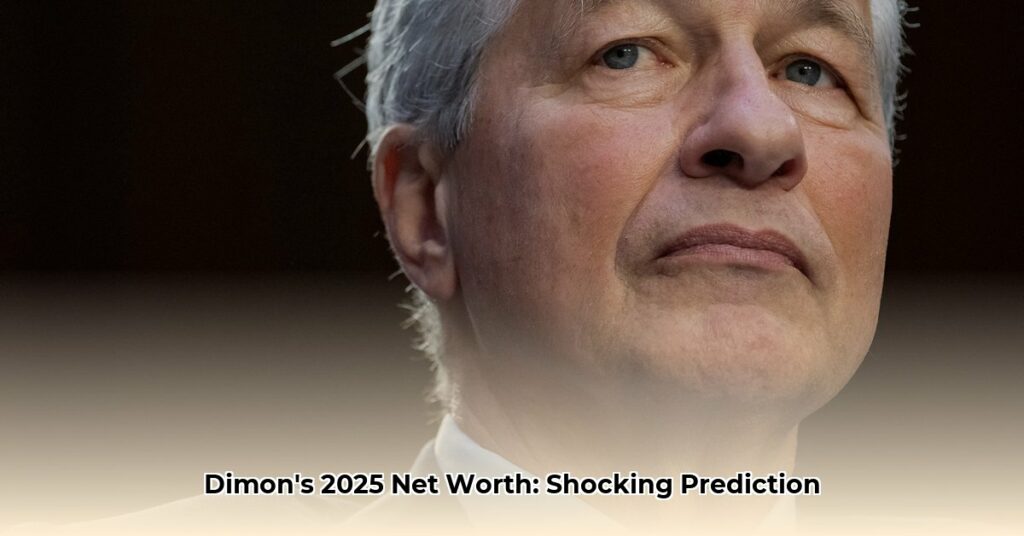Jamie Dimon’s net worth is estimated to be over $2 billion as of January 2025. This impressive figure is largely attributed to his long and successful tenure as Chairman and CEO of JPMorgan Chase, the largest bank in the U.S. by assets. This article delves into the key drivers of his wealth, exploring his compensation, investments, and the symbiotic relationship between his fortune and the bank’s performance.
Dimon’s Compensation: The Foundation of His Wealth
Dimon’s compensation at JPMorgan Chase isn’t just a salary; it’s a carefully structured package designed to reward his performance and align his interests with the bank’s success. This includes a base salary, performance-based bonuses, and substantial stock awards.
| Year | Base Salary (Estimated) | Bonus & Stock Awards (Estimated) | Total Compensation (Estimated) |
|---|---|---|---|
| 2020 | $1.5 million | $31.5 million | $33 million |
| 2021 | $1.5 million | $34.5 million | $36 million |
| 2022 | $1.5 million | $34.5 million | $36 million |
| 2023 | $1.5 million | TBD | TBD |
| 2024 | $1.5 million | TBD | TBD |
| 2025 | $1.5 million | TBD | TBD |
Disclaimer: These figures are estimates based on publicly available information and may not accurately reflect final amounts.
These stock awards are a crucial component of his wealth accumulation. As JPMorgan Chase’s stock price increases, so does the value of Dimon’s holdings. This direct link between his compensation and the bank’s performance incentivizes him to steer the company toward growth and profitability.
Beyond the Paycheck: Investments and Stock Holdings
While his JPMorgan Chase compensation forms a significant portion of his wealth, Dimon likely holds a diversified investment portfolio. These may include real estate (such as his properties in New York City and Bedford), private equity investments, and potentially holdings in technology ventures. Information on these private investments is generally not publicly disclosed, making a precise estimate of their total value challenging.
His most visible investment is his significant ownership stake in JPMorgan Chase. As of October 2024, he owned nearly 7.8 million shares, demonstrating a substantial personal investment in the bank’s future. This “skin in the game” further aligns his interests with those of the shareholders.
The Dimon Effect: JPMorgan Chase’s Growth Trajectory
Dimon’s leadership has demonstrably impacted JPMorgan Chase’s performance. During his tenure, the bank has navigated both calm and turbulent economic waters, emerging as a leader in the financial industry. His strategic acquisitions, including Bank One, Bear Stearns, and Washington Mutual, were significant, calculated risks that, by many analyses, contributed to the bank’s expansion and market dominance.
His stewardship during the 2008 financial crisis is particularly noteworthy. While other institutions faltered, JPMorgan Chase, under Dimon’s guidance, weathered the storm, solidifying his reputation as a skilled crisis manager. This ability to navigate challenging economic conditions may have contributed significantly to the bank’s, and his own, financial success.
The Future of Dimon’s Fortune
Projecting Dimon’s future net worth involves considerable uncertainty. While past performance offers some clues, the financial landscape is ever-changing. Factors like market volatility, regulatory changes, and unforeseen economic events can all significantly impact his wealth. Given his continued leadership at JPMorgan Chase and his likely diversified investment strategy, maintaining his substantial wealth seems probable. However, pinpointing an exact figure for 2025 and beyond is speculative.
Conclusion: A Complex Financial Picture
Jamie Dimon’s net worth reflects a confluence of factors: his significant compensation package at JPMorgan Chase, the performance of the bank under his leadership, his strategic investments, and the overall economic climate. While an estimated figure provides a useful snapshot, it’s essential to recognize the dynamic nature of wealth and the inherent uncertainties in projecting future growth. Understanding the various components contributing to his fortune offers valuable insight into the complexities of CEO compensation and the interconnectedness of personal wealth and corporate performance in the financial industry.



